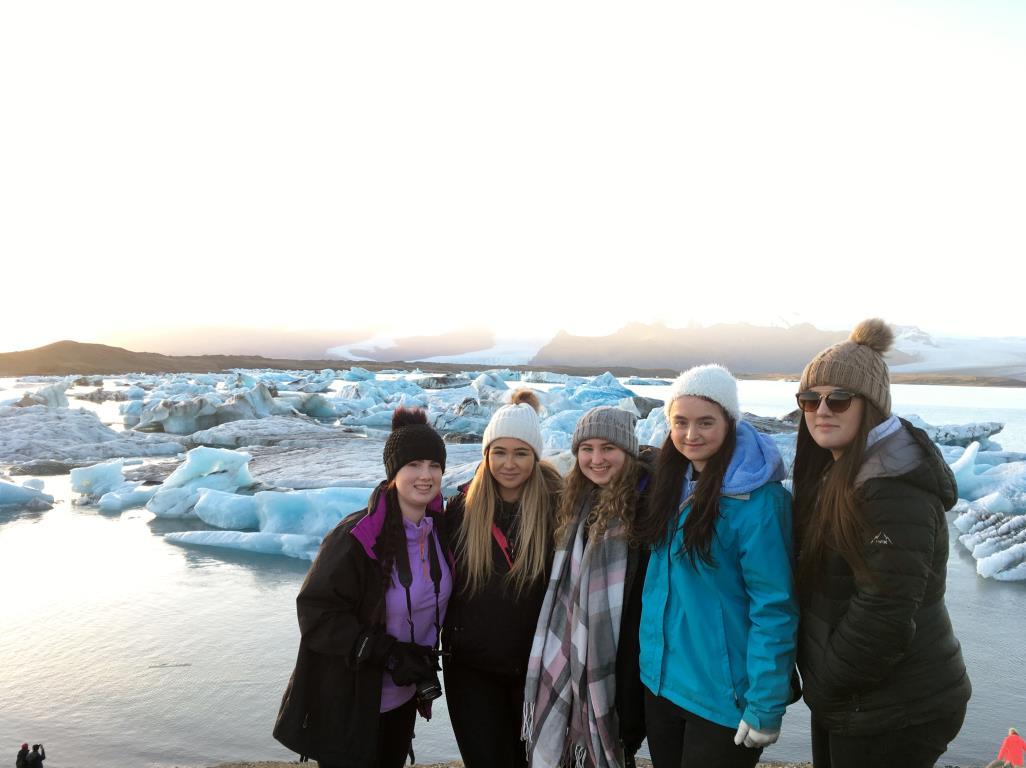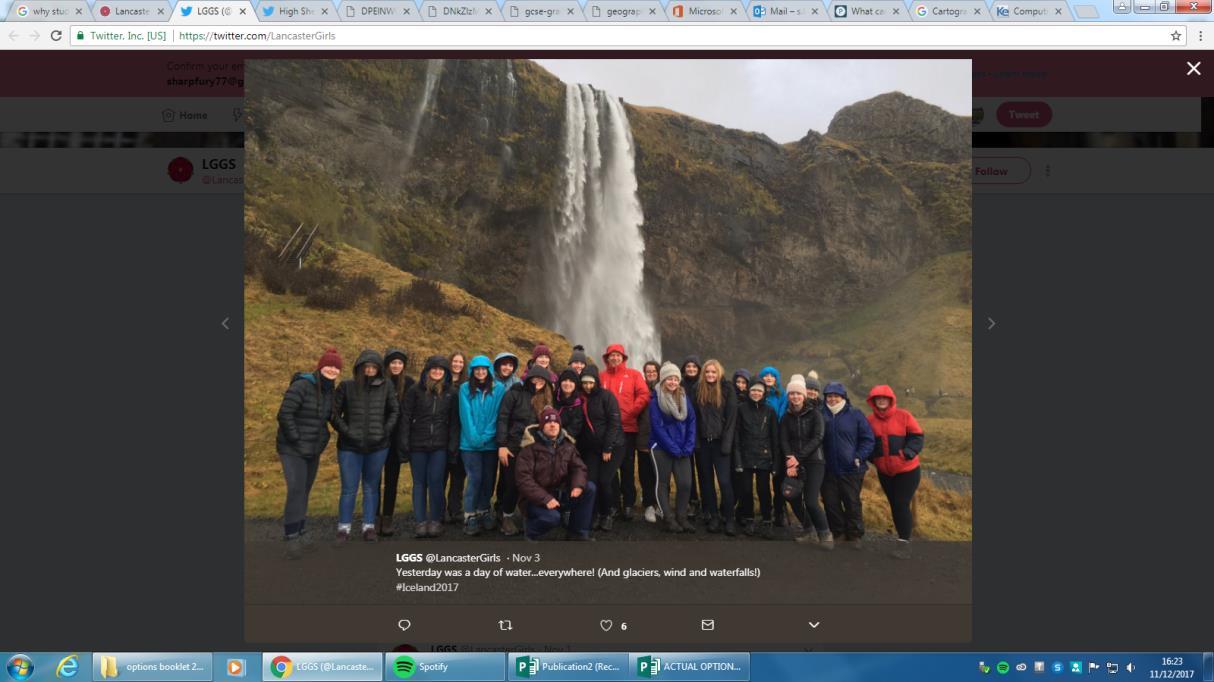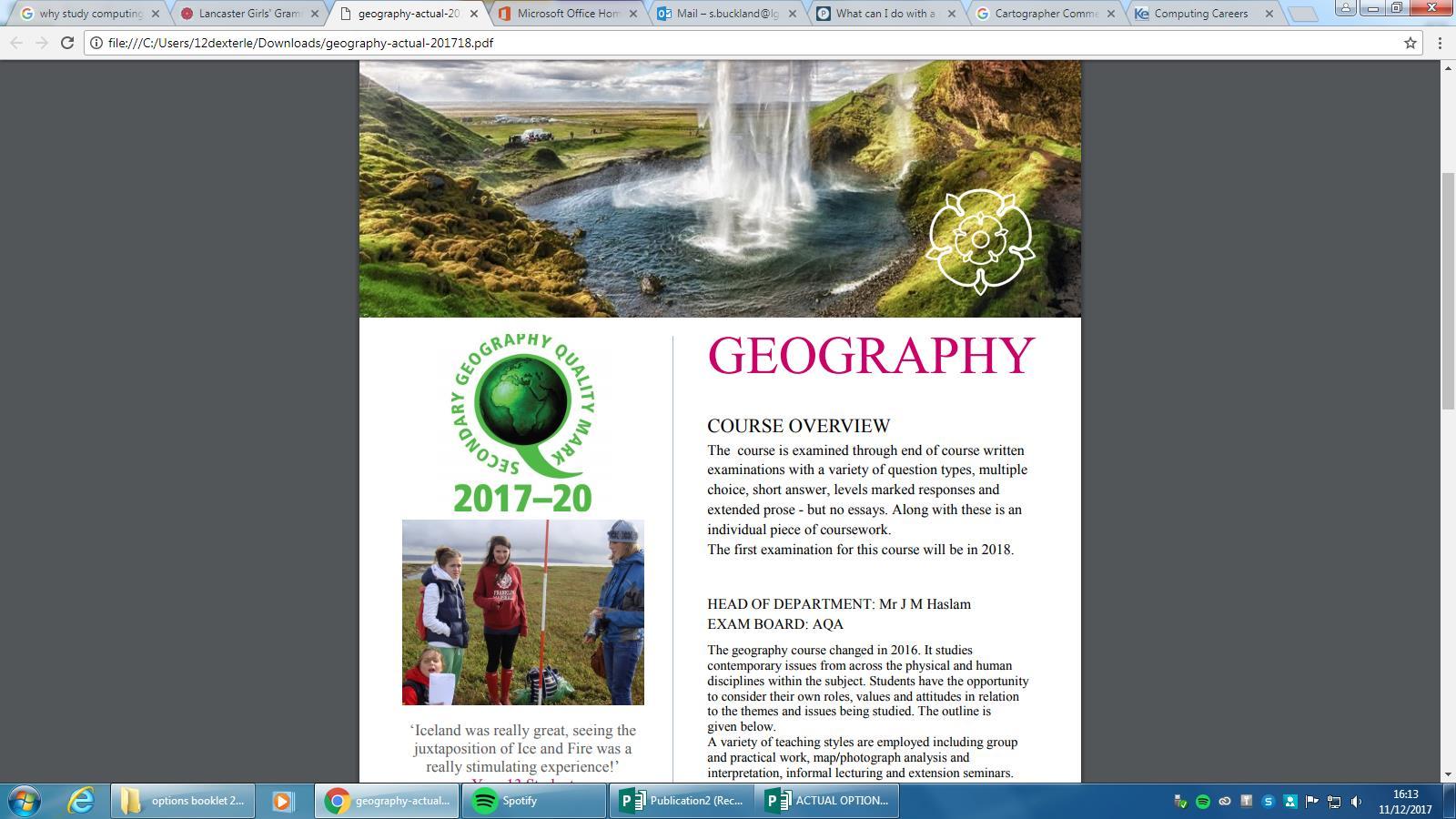
4 minute read
Geography
OPTION CHOICE HUMANITIES GEOGRAPHY
Gcse GEOGRAPHY
Structure of the Course The subject content of the course focuses on developing a detailed understanding of the physical and human landscapes across the globe. In the physical section, we do this by looking at the characteristics of the challenge of natural hazards, physical landscapes in the UK and the Living World. The human course includes urban issues, economic geography and resource management.
Format of Assessment
The scheme of assessment is linear in nature and consists of three components: Unit 1: Living with the physical environment (35%) Unit 2: Challenges in the human environment (35%) Unit 3: Geographical applications (30%) All Units are taken at the end of the course in Year 11.
FIELDTRIPS Fieldtrips are an integral element of what we are about in the department and always have been. The number and breadth of trips offered is the largest in school and at all points supports the classroom learning whether that be within the human or physical disciplines. At GCSE we have to provide experience of fieldwork as part of the obligatory delivery of the course, and this is then signed off as part of the course experience. This is currently done on separate days, each focused on a specific

‘The harshness of the landscape was awe inspiring and the ways in which the Icelanders had adapted to this was impressive.’ ‘To see how a nation had kept its clear identity through language, literature and by interacting with the landscapes - was very impressive.’ Jess
W H Y G E O G R A P H Y ?
Geography teaches you all about the world in which we live. It is the study of the world's societies, and gives you insight into economies and cultures far flung from your own. Geography provides 'transferable skills' including independent working, meeting deadlines and teamwork, as well as how to assess data and analytical and research skills gained from your Geography course are attractive to a range of employers . Geography is consistently amongst the top 10 of all subjects studied at university in terms of developing applicable transferable skills.


element of the course. It is usual to have one day in Year 10 and another in Year 11. Often in the past, a piece of coursework would stem from this fieldwork experience, now the course has a Skills and Applied Geography paper instead and so there is no individual coursework write up.
GEOGRAPHY SOCIETY This meets on a regular basis, usually on a Tuesday in room 5. It is run by sixth formers and they decide on the programme. In the past these events have varied from quizzes, discussions on contemporary topics to guest speakers. We have had people from the local university, the Environment Agency and recently a Syrian Refugee who was then based in Lancaster. All have proven to be fascinating talks and have helped to solidify the girls’ knowledge base and widen their experience of the world around them.
ICELAND The Iceland trip which runs for the girls taking A-level Geography has become our signature trip amongst the many that we run. It is usually a close to a week long and involves travel around a fascinating and unique country. In 2017 we changed our plans a little and organised a trip that took us to the far north. We flew from Glasgow in to Reykjavik and then on to Akureyri on the Arctic coast. From here we visited many exciting and impressive sites ranging from boiling mud pools to the largest and most powerful waterfall in Europe. Driving east around the Ring Road (Route 1) brought us through the fjords around to Skaftafjell and Jokuslarlon the glacial lagoon where in the twilight we saw Icebergs and seals intermingling as the northern sun dipped below the horizon. We passed the spectacular Geysir and Gullfoss to the ‘must visit’ attraction of the Blue Lagoon and then travelled on to Reykjavik for the final night. Words can hardly do the landscape justice and it should be a definite on everyone’s ‘bucket-list’. We can’t wait until our next visit!

The Geography Department at LGGS was re-awarded the Secondary Geography Quality Mark (SGQM), for the second time, following the first Award in 2014. LGGS was one of approximately 45 centres nationally and internationally to gain the Award which ran from 2017 - 2020. The SGQM is a prestigious Award which recognises quality and progress in Geography leadership, curriculum development and learning and teaching in schools. CONTACT teacher Mr Haslam

EXAM BOARD AQA
ASSESSMENT Exam
CAREERS Architecture Economics Accountancy Law Teaching Management Environmental disciplines Oil and resource management Earth Sciences Policy and Government The built environment Travel, tourism and leisure Development and global issues Geographical information systems










